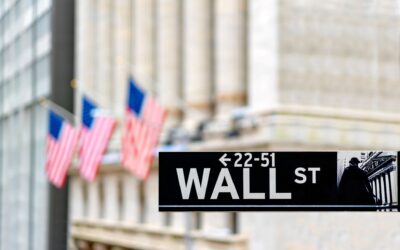When it comes to stock market volatility, this year has been unlike any other in a very long time. In Israel, this has been felt to a lesser degree compared to the main indices in the US and Europe. In fact, at present, it is only just over 2% down since the beginning of the year. However, it is wise to remain diligent as the saying “when the U.S. sneezes, the world catches a cold” is still relevant today.
It has to be pointed out that not many people saw current challenges coming in the way they did, especially as the last year delivered double-digit gains and set multiple record highs. Now, to a certain degree, this had to do with an unprecedented trillion-dollar money production by the biggest central banks in the world that flooded the market with liquidity. However, this could not last forever and something had to give.
Back in January 2022, there was a significant decline in global stock markets that halted in the summer. Wall Street enjoyed a month of bull run of almost 20% gain in the S&P 500 index. However, things started unraveling in the closing stages of August when Fed chair Jerome Powell announced his intention to fight inflation by raising the interest rates regardless of potential damage to the economy. And so he did, the interest shot up. His speech triggered bond market declines and paved a way for growing indications of the US and global recession.
However, there are other factors worth remembering when making investment decisions that continue contributing to the capital markets’ decline, keeping it deeply in the bear market territory.
Following the Russia’s invasion, fighting in Ukraine has persisted, seriously impacting the global energy sector. The commodity market has been in turmoil since the Coronavirus, and the geopolitical tensions in the China-Taiwan region as well as China’s draconian closures are fuelling the turbulence in the sector. Furthermore, the economy is being shaken by a developing real estate crisis within China itself. The Chinese government must work hard to avoid both an economic and a political disaster because of its population’s declining trust, despite recent signs of improvement in economic activity.
In Britain, a combination of an energy crisis, inflation, and political shocks led to the sterling being crashed, and with the country being outside of the European Exchange Rate Mechanism, economists fear that similar shocks may await the UK.
Protracted selloffs in the market have the potential to return indices to their annual lows. At this stage, there are all the required ingredients to make it happen – the Federal Bank and its counterparts around the world have already made it clear about their intentions regarding interest rates. As a result of the reduction in liquidity in the US, the 2-year treasury yields broke above 3.79%, a level not seen since 2007.

For many investors the last fifteen years have been almost a bliss as all markets, including real estate, shares, bonds, and cryptocurrencies, have been on an upward trajectory. However, this year all of these markets are moving south. This prolonged decline made some investors believe that the worst may soon be over and they would soon be swooping in to start buying. However, as one song goes, “I thought we hit rock bottom and then the floor gave out”. The issue is, when it comes to markets, the worst always comes as a surprise and it beats expectations.
And at the moment, there are reasons to be wary of such a scenario. The warnings have been coming from various directions. According to celebrity investor Ray Dalio, a 4.5% increase in interest rates would cause the stock market to fall 20%. The World Bank has issued a warning that in an attempt to rein in rising prices, central banks could create some serious pain for consumers. According to their assessment, this will result in a global recession in 2023. The likelihood of a “soft landing,” in which the Fed raises interest rates and the economy contracts gradually without experiencing a significant shock, is quickly shrinking. Investors are already starting to worry that the Federal Reserve will raise interest rates by one full percentage point this week. Simply put, a consensus has been building for a potential of further upheaval in the markets in the near term. As to the Israeli economy, due to its relatively small size compared to the world’s GDP, such a slowdown would be difficult to bypass and, therefore, it will likely be reflected in the local stock market performance. The good news is that all bear runs eventually finish, and this could be a buying opportunity that no investor would want to miss.




0 Comments